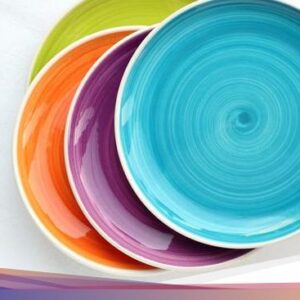Jakarta –
Vitamin D is one of the important nutrients the body needs. This vitamin is known to be easily obtained from exposure to sunlight on the body. Vitamin D affects many body functions, including bone health.
However, many people do not get enough vitamin D. Vitamin D intake can actually also be obtained from food, especially for those who are rarely exposed to sunlight or live in areas with low sunlight intensity.
Vitamin D has many benefits, from maintaining healthy bones to supporting the immune system. Vitamin D deficiency can cause various health problems and decreased immune system.
ADVERTISEMENT
SCROLL TO CONTINUE WITH CONTENT
The easiest way to get the intake is by basking in the morning sun. However, consuming vitamin D is also important for maintaining health, from being good for bones and teeth, strengthening the immune system, to heart health.
7 Foods High in Vitamin D
In a WebMD article that has been verified by an Internal Medicine Doctor, Nayana Ambardekar, MD explains that vitamin D is important for bones, blood cells, and the immune system, specifically for the body’s defense against germs.
Apart from that, Katherine Marengo LDN, RD, who has verified the Healthline article, said that the best way to get vitamin D is from food or supplements. Here are some foods that are rich in vitamin D:
1. Yogurt
Yogurt can be a healthy snack that contains vitamin D. Even though the levels may not be as rich as other foods or even exposure to sunlight, this food could be an option.
Yogurt can be a friend to eating fresh fruit. Choose plain or plain yogurt, which is the lowest in fat to reduce sugar, fat and calories. Read the composition again to ensure how much vitamin D is extracted into it. Yogurt is included in the food choices where vitamin D extract is added.
2. Orange Juice
Apart from food, fresh drinks such as orange juice also contain vitamin D. One cup contains up to 100 IU which meets 16 percent of women’s daily vitamin D needs. Orange juice is included in the choice of drinks with added (fortified) Vitamin D extract.
The vitamin D in this juice can keep joints healthy, thereby reducing the risk of various health problems. About 65% of people around the world are lactose intolerant, so orange juice is often added with vitamin D extract and other nutrients such as calcium.
However, orange juice is not a good choice for everyone. For people who are prone to acid reflux, ulcers, orange juice can worsen the symptoms. Meanwhile, for diabetics, choose pure orange juice and don’t buy packaged orange juice because it may contain high sugar.
3. Milk
A variety of milks, whether whole milk, dairy or non-dairy milk, are included in the drink choices with added vitamin D extract. Low-fat milk could be the right choice. Milk can be a companion to drinking fruit juice, such as making delicious smoothies.
Read the composition again to ensure how much vitamin D is extracted in it. Milk is also often recommended for those who are elderly because as you get older, your bone density also begins to decrease. Therefore, it is important to maintain bone health and density.
4. Salmon
Salmon is known as a fatty fish which is popular as a high source of vitamin D. According to the United States Department of Agriculture or USDA Food Composition Database, one 100 gram serving of Atlantic salmon contains 526 IU of vitamin D, or 66% of the DV or daily value.
Salmon is famous for its omega-3 fatty acid content, but is also a good source of vitamin D for the body. On average, wild-caught salmon has more vitamin D than farmed salmon. Other types of fatty fish are also good sources of vitamin D, one of which is mackerel and mackerel.
5. Mushrooms
Mushrooms are the only non-animal source of vitamin D that is high enough. Like humans, fungi can synthesize vitamin D when exposed to UV light. However, fungi produce vitamin D2, while animals produce vitamin D3.
Although vitamin D2 helps increase blood levels of vitamin D, it may not be as effective as vitamin D3. 80 grams of mushrooms contain 3.2 micrograms of vitamin D.
The types of mushrooms recommended by Moskovitz are chanterelles (golden cock’s comb mushrooms) and morels (sponge mushrooms), because mushrooms that are exposed to sunlight contain more vitamin D. Oyster mushrooms can also be another choice of mushrooms that are rich in vitamin D.
6. Eggs
Apart from protein, eggs also contain high levels of vitamin D, especially in the yolk. Most of the protein in eggs is found in the white, while most of the fat, vitamins and minerals are found in the yolk.
The yolk of one large egg contains 37 IU of vitamin D, or 5% of the daily value. Several factors influence vitamin D levels in egg yolks, such as exposure to sunlight in chickens, vitamin D content in chicken feed, and exposure to UV light in egg yolks will increase vitamin D in eggs.
Additionally, eggs from chickens fed vitamin D-enriched feed may contain up to 34,815 IU of vitamin D per 100 grams of egg yolk. So, if one egg yolk contains about 17 grams, you will get about 2.5 times the DV of vitamin D in one egg.
One egg yolk contains around 40 IU of vitamin D. On the womenhealthmag page, experts also recommend consuming free-range chicken eggs which contain three times more vitamin D. However, consumption still needs to be limited because too much can increase cholesterol levels.
7. Cod Liver Oil
Cod liver oil or cod liver oil is a real food that is often made into a popular supplement. If you don’t like fish, taking cod liver oil supplements could be another way to get the nutrients.
At approximately 450 IU per teaspoon (4.9 mL), this is equivalent to 56% of the daily value. Cod liver oil is also very high in vitamin A, which can be toxic in high amounts. In addition, cod liver oil contains high levels of omega-3 fatty acids.
Most adults need about 15 micrograms (mcg) per day. This number drops to 10 mcg in infants and up to 20 mcg in adults aged 71 years or older. So, make sure your body really gets a high intake of Vitamin D, okay?
(au/fds)






